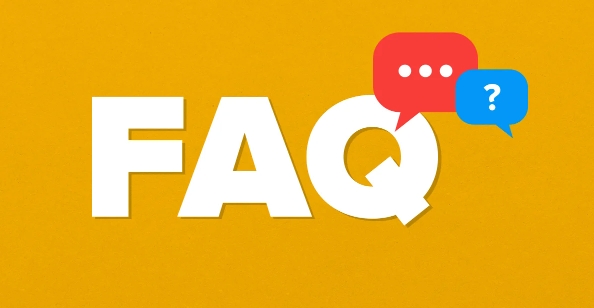Is it possible to recover settings from an uninstalled program
Jul 18, 2025 am 01:25 AMYes, you can sometimes recover settings from an uninstalled program. Most desktop apps store configuration files in predictable locations like AppData (Windows), Library (macOS), or ~/.config (Linux), and many uninstallers don’t delete these by default. 1. Avoid cleanup tools immediately after uninstalling to preserve leftover config files. 2. Check standard app data folders before reinstalling, as fresh installs may overwrite old settings. 3. Use backups or Windows System Restore to recover config files without full system rollback. 4. Portable apps retain settings in their own folder, so long as it wasn’t deleted. Recovery is unlikely if the app uses cloud-only storage, you manually deleted app data, the uninstaller wiped settings, or the drive was formatted. Before attempting recovery, search for app-specific folders, check registry (if experienced), reinstall to see if settings are auto-detected, or use file recovery tools if files were already deleted.

Yes, sometimes you can recover settings from an uninstalled program — but it depends on how the app stored its data and whether you took any steps before uninstalling. Most programs don’t automatically delete all their settings when you uninstall them, especially on Windows, but there’s no universal rule here.

Where Programs Typically Store Settings
Most desktop apps store configuration files in predictable places:

-
Windows:
-
C:\Users\YourName\AppData\Roaming\AppName -
C:\Users\YourName\AppData\Local\AppName - The registry (though this is trickier to dig through)
-
-
macOS:

-
~/Library/Application Support/AppName ~/Library/Preferences/com.appname.plist
-
-
Linux:
- Usually hidden files or folders in your home directory like
~/.config/appname/
- Usually hidden files or folders in your home directory like
When you uninstall a program, many uninstallers don’t clean up these folders by default — especially if you just deleted the program folder or used a basic removal method.
So if you re-install the same program later, it might pick up those old settings automatically, assuming the files are still there.
How to Improve Your Chances of Recovering Settings
If you're hoping to get your settings back after uninstalling, here are some things that help:
? Don’t run a cleanup tool immediately after uninstalling
Tools like CCleaner or Revo Uninstaller might remove leftover config files that could be useful.? Check common app data folders before reinstalling
If you’re planning to reinstall the app, look in the standard directories mentioned above before installing again — sometimes installing fresh creates new defaults and may ignore old ones.? Use a backup or system restore point (Windows)
If you have a recent backup or System Restore enabled, you may be able to roll back just enough to recover key config files without restoring your whole system.? For portable apps: settings often stay intact
Portable versions of software usually keep all data within the app folder itself. As long as you didn’t delete that folder completely, your settings should still be there.
When It’s Probably Not Possible
There are definitely cases where recovering settings won’t work:
? The app used cloud-only storage for settings
Some modern apps only sync settings online (like Visual Studio Code with cloud sync), so if you weren’t signed in or syncing, local settings might not exist after uninstall.? You manually cleaned the app data
If you already deleted the AppData or Library folders related to the app, there’s no way to get that back unless you have a backup.? The app wipes settings during uninstall
Some installers offer a “clean uninstall” option that removes all traces — if that was selected, your settings are gone.? You formatted or replaced your drive
That one’s obvious, but worth mentioning.
Quick Checklist Before You Try Anything
Here’s what you can do quickly if you want to try recovering settings:
- [ ] Look in AppData/Roaming and AppData/Local (or equivalent on macOS/Linux)
- [ ] Search your user directory for the app name
- [ ] Check the registry (only if you know what you’re doing)
- [ ] Try reinstalling the app and see if it auto-detects old settings
- [ ] Use a file recovery tool only if you already deleted the files
Basically, yes — it’s possible to recover settings from an uninstalled program, especially if you didn’t go out of your way to clean everything. But success really comes down to where the app saved its data and what you did right after uninstalling.
The above is the detailed content of Is it possible to recover settings from an uninstalled program. For more information, please follow other related articles on the PHP Chinese website!

Hot AI Tools

Undress AI Tool
Undress images for free

Undresser.AI Undress
AI-powered app for creating realistic nude photos

AI Clothes Remover
Online AI tool for removing clothes from photos.

Clothoff.io
AI clothes remover

Video Face Swap
Swap faces in any video effortlessly with our completely free AI face swap tool!

Hot Article

Hot Tools

Notepad++7.3.1
Easy-to-use and free code editor

SublimeText3 Chinese version
Chinese version, very easy to use

Zend Studio 13.0.1
Powerful PHP integrated development environment

Dreamweaver CS6
Visual web development tools

SublimeText3 Mac version
God-level code editing software (SublimeText3)
 How to uninstall programs on Linux Mint system? Tips for Linux uninstallation without application
Jan 08, 2024 am 09:44 AM
How to uninstall programs on Linux Mint system? Tips for Linux uninstallation without application
Jan 08, 2024 am 09:44 AM
How to uninstall unnecessary applications in Mint on Linux system? I want to uninstall unnecessary software, what should I do? Let’s take a look at the detailed tutorial below. 1. Click the menu. 2. Click an application folder, such as Internet. 3. Right-click the application you want to uninstall, such as the browser. 4. Click the ‘Uninstall’ option below. 5. You need to enter the system password, and then click the Authorize button. 6. Click the ‘Yes’ button again to confirm the uninstallation.
 How to uninstall programs in Windows 11?
Jun 30, 2025 am 12:41 AM
How to uninstall programs in Windows 11?
Jun 30, 2025 am 12:41 AM
There are three main ways to uninstall programs on Windows 11: 1. Uninstall through "Settings", open the "Settings" > "Apps" > "Installed Applications", select the program and click "Uninstall", which is suitable for most users; 2. Use the control panel, search and enter "Control Panel" > "Programs and Functions", right-click the program and select "Uninstall", which is suitable for users who are accustomed to traditional interfaces; 3. Use third-party tools such as RevoUninstaller to clean up more thoroughly, but pay attention to the download source and operation risks, and novices can give priority to using the system's own methods.
 What is the file name of the uninstaller?
Aug 01, 2020 am 11:45 AM
What is the file name of the uninstaller?
Aug 01, 2020 am 11:45 AM
The file name of the uninstaller is "uninstall.exe". The uninstaller is a type of computer software that is used to help users delete software from the computer. When uninstalling the program, the files called are usually other than "uninstall.exe" , and some files, such as DLL files.
 How to delete apps on Mac
May 23, 2023 pm 07:58 PM
How to delete apps on Mac
May 23, 2023 pm 07:58 PM
The app isn't just for iOS, either. Your Mac comes with a bunch of apps installed, and you probably have many, many installed. However, some apps are never used, or are only used once or twice. If you have unwanted applications on your Mac, it makes sense to delete them to free up some extra hard drive space. If you're wondering how to delete apps on Mac, the following steps should get you started. How to Delete Apps on Mac Using Launchpad One of the fastest ways to delete apps on Mac is to use Launchpad. Here's how it works: Open La by clicking the Launchpad icon in the Dock
 Insufficient space on C drive? Practical tips to free up space quickly!
Mar 25, 2024 pm 03:15 PM
Insufficient space on C drive? Practical tips to free up space quickly!
Mar 25, 2024 pm 03:15 PM
Insufficient space on C drive? Practical tips to free up space quickly! When we use the computer, we often encounter the situation of insufficient space on the C drive. What to do at this time? Don't worry, this article will introduce some practical tips to help you quickly free up C drive space and make your computer run more smoothly. 1. Clean up temporary files In the daily use of computers, the system and software will generate a large number of temporary files, taking up a lot of storage space. You can clean these files through the following steps: Open "This PC", find the C drive, right-click and select "Properties"; in "Properties"
 How to uninstall applications in Win10 - How to open application uninstallation in Win10
Jan 13, 2024 pm 06:39 PM
How to uninstall applications in Win10 - How to open application uninstallation in Win10
Jan 13, 2024 pm 06:39 PM
With the full release of win10 system, many friends have been upgrading and using it one after another. At the same time, some friends will take out the computers hidden at home to upgrade. However, the embarrassing thing is that the computer becomes stuck after the upgrade, especially in win10 system. The installation is caused by a lot of unused programs. Let me give you a detailed guide on how to add and delete applications in the win10 system. In the win7 operating system, we can uninstall some useless applications in the computer by finding the Control Panel - Add/Remove Programs, but after using the new version of win10 system, we cannot find "Add/Remove Programs", so what? What about uninstalling third-party software you installed? Next, the editor will give you a detailed answer on how to delete/uninstall win10
 Is it possible to recover settings from an uninstalled program
Jul 18, 2025 am 01:25 AM
Is it possible to recover settings from an uninstalled program
Jul 18, 2025 am 01:25 AM
Yes,youcansometimesrecoversettingsfromanuninstalledprogram.MostdesktopappsstoreconfigurationfilesinpredictablelocationslikeAppData(Windows),Library(macOS),or~/.config(Linux),andmanyuninstallersdon’tdeletethesebydefault.1.Avoidcleanuptoolsimmediatelya
 How to completely remove a program from mac os
Jul 28, 2025 am 02:40 AM
How to completely remove a program from mac os
Jul 28, 2025 am 02:40 AM
To completely uninstall programs on macOS, you must manually delete the application and its associated files; first drag the application from the "Applications" folder to the Trash, and then delete the relevant support files in ~/Library/ApplicationSupport, ~/Library/Preferences, ~/Library/Caches, ~/Library/Containers, and ~/Library/Logs through "Go to Folder". Then remove the login item in the system settings, delete the relevant extensions in the browser, and use third-party tools such as AppCleaner to automatically scan the residual files, and finally clear the Trash to completely delete all files.






